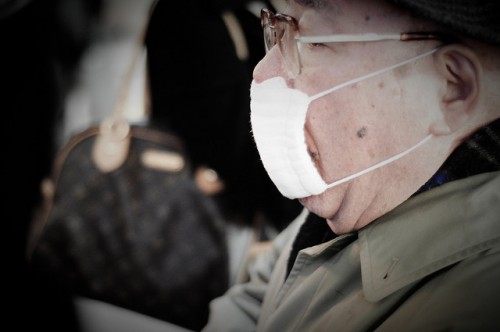The outbreak that shook the tiny town of Ninety Six, South Carolina, probably began in the spring of 2012. An elderly janitor at the local elementary school fell ill and began unwittingly spreading the bacterium that causes tuberculosis. By June 2013, more than 50 students were infected and at least ten had developed signs of the disease.
To prevent further spread, the South Carolina Department of Health and Environmental Control (DHEC) ordered the janitor to take medication and stay home, but he didn’t. According to an emergency public health order, he left his house without DHEC’s permission and refused to answer some of the department’s many questions. When he did answer, his responses were “evasive, vague and inconsistent.” What happened next probably shouldn’t have surprised me, but it did: The state arrested the janitor and threw him in a medical detention facility.
It’s easy to see why public health officials would want to isolate an uncooperative man with a raging tuberculosis infection: The disease can be serious. Not everyone who contracts the bacterium gets sick. But those who do usually develop a persistent cough. And that cough helps the disease spread. A single infection can quickly become an outbreak.
And tuberculosis is difficult to treat. The infection can be cured, but patients need to follow a complicated regimen that involves taking three or four drugs at once for six to nine months. Because many people fail to complete the entire course of treatment, drug-resistant forms of the disease have emerged, including terrifying strains that are resistant to most medications used to treat tuberculosis.
But we don’t force people to get flu shots or lock up people with HIV for refusing to take antiretroviral medications. Why TB? What makes it so special?
According to Richard Coker, a British physician who wrote a book about the detention and coercion of tuberculosis patients in the US, the balance between civil liberties and public good began to shift in the early 1990s. New York City was battling a nasty outbreak of drug-resistant TB, and in 1993, the city amended its health code to allow for detection of individuals who refused to adhere to the lengthy TB treatment regimen, even after they were no longer infectious. Today there are more than a dozen state statutes on the books. New Jersey law allows patients who are suspected of being infectious and threaten non-adherence to be temporarily committed. In Montana, even patients who are suspected of having TB can be detained if they pose a flight risk.
These laws strike me as misguided at best. The World Health Organization calls tuberculosis “a disease of poverty and inequality that particularly affects key vulnerable populations with little or no access to basic services.” That holds true even in the United States. Nearly two-thirds of the roughly 10,000 cases of TB reported in 2013 occurred among foreign-born individuals. The TB rate among Asians was nearly 26 times greater than among whites. And the TB rate for the homeless was 10 times greater than the national incidence. Between 2002 and 2009, New York City detained 79 people for refusing tuberculosis treatment. Homelessness and mental illness were two of the strongest predictors of detention.
Medical detention seems like one more way of marginalizing the already marginalized. We take individuals who have a life-threatening disease — one that disproportionately affects foreigners, minorities, and the homeless — order them to take medications, and when they fail to comply (in some cases because they’re addicted to drugs or mentally ill), we throw them in jail? Sure, those actions might prevent the spread of disease, but at what cost?
We shouldn’t be surprised that some infected individuals are reluctant to take orders from a public health system that has, in many cases, utterly failed them. I don’t know anything about the janitor or his interactions with the DHEC, but it seems safe to assume he was scared. He had recently been diagnosed with a serious disease, and newspapers were reporting that he had spread this disease to dozens of schoolchildren. State authorities ordered him to take pills, refuse visitors, and stay inside his house. They told him he must ask permission to leave and wear a mask in public. They handed him a document filled with legalese that threatened: “failure to cooperate with all necessary investigations, isolation, evaluation, and treatment will result in your arrest by a law enforcement officer.” No wonder he balked. I would be scared too. I would be scared, and I would be angry.
***
Image credit: Héctor García via Flickr

2 thoughts on “Infected and Imprisoned”
Comments are closed.